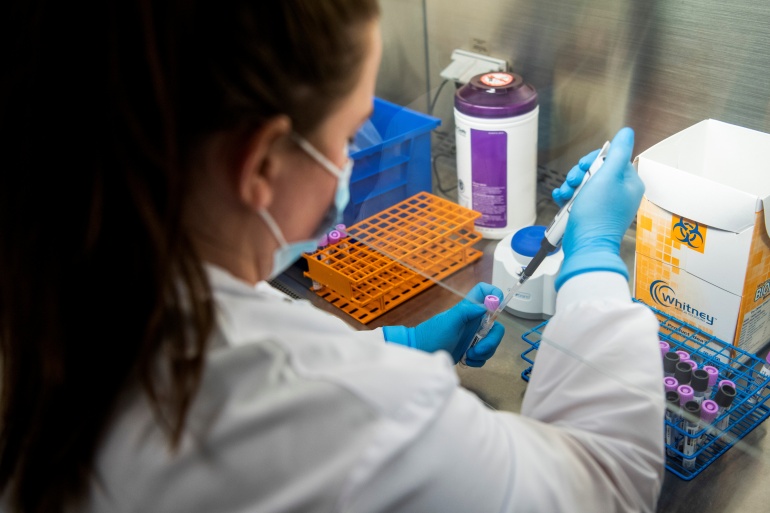While the world is already struggling with the Omicron variant, scientists have warned that this will not be the last variant of the deadly coronavirus to worry the world.
As per the scientists, every variant gives the virus a chance to mutate, and Omicron has an edge over all the previous variants because it spreads way faster.
That means more people in whom the virus can further evolve. Experts don’t know what the next variants will look like or how they might shape the pandemic, but they say there’s no guarantee the sequels of omicron will cause milder illness or those existing vaccines will work against them.
“The faster omicron spreads, the more opportunities there are for mutation, potentially leading to more variants," said Leonardo Martinez, an infectious disease epidemiologist at Boston University.
Omicron is more likely than Delta to reinfect individuals who have already been infected with Covid. Also, it is more likely to cause “breakthrough infections” in vaccinated people while also attacking the unvaccinated. The World Health Organization reported a record 15 million new COVID-19 cases for the week of Jan. 3-9, a 55% increase from the previous week.
“It’s the longer, persistent infections that seem to be the most likely breeding grounds for new variants,” said Dr. Stuart Campbell Ray, an infectious disease expert at Johns Hopkins University. "It’s only when you have a very widespread infection that you’re going to provide the opportunity for that to occur.”
According to federal health officials in the US, the Omicron variant is so contagious that most people in the country will be infected, and the pandemic has been compared to a "natural disaster."
The Omicron variant, which has numerous key mutations, has spread swiftly over the world and shattered records for new daily cases in the US. According to the CDC, the variant is currently responsible for more than 98 percent of Covid cases in the US. Also, it has now replaced Delta in less than a month.
As per the scientists, every variant gives the virus a chance to mutate, and Omicron has an edge over all the previous variants because it spreads way faster.
That means more people in whom the virus can further evolve. Experts don’t know what the next variants will look like or how they might shape the pandemic, but they say there’s no guarantee the sequels of omicron will cause milder illness or those existing vaccines will work against them.
“The faster omicron spreads, the more opportunities there are for mutation, potentially leading to more variants," said Leonardo Martinez, an infectious disease epidemiologist at Boston University.
Omicron is more likely than Delta to reinfect individuals who have already been infected with Covid. Also, it is more likely to cause “breakthrough infections” in vaccinated people while also attacking the unvaccinated. The World Health Organization reported a record 15 million new COVID-19 cases for the week of Jan. 3-9, a 55% increase from the previous week.
“It’s the longer, persistent infections that seem to be the most likely breeding grounds for new variants,” said Dr. Stuart Campbell Ray, an infectious disease expert at Johns Hopkins University. "It’s only when you have a very widespread infection that you’re going to provide the opportunity for that to occur.”
According to federal health officials in the US, the Omicron variant is so contagious that most people in the country will be infected, and the pandemic has been compared to a "natural disaster."
The Omicron variant, which has numerous key mutations, has spread swiftly over the world and shattered records for new daily cases in the US. According to the CDC, the variant is currently responsible for more than 98 percent of Covid cases in the US. Also, it has now replaced Delta in less than a month.


















